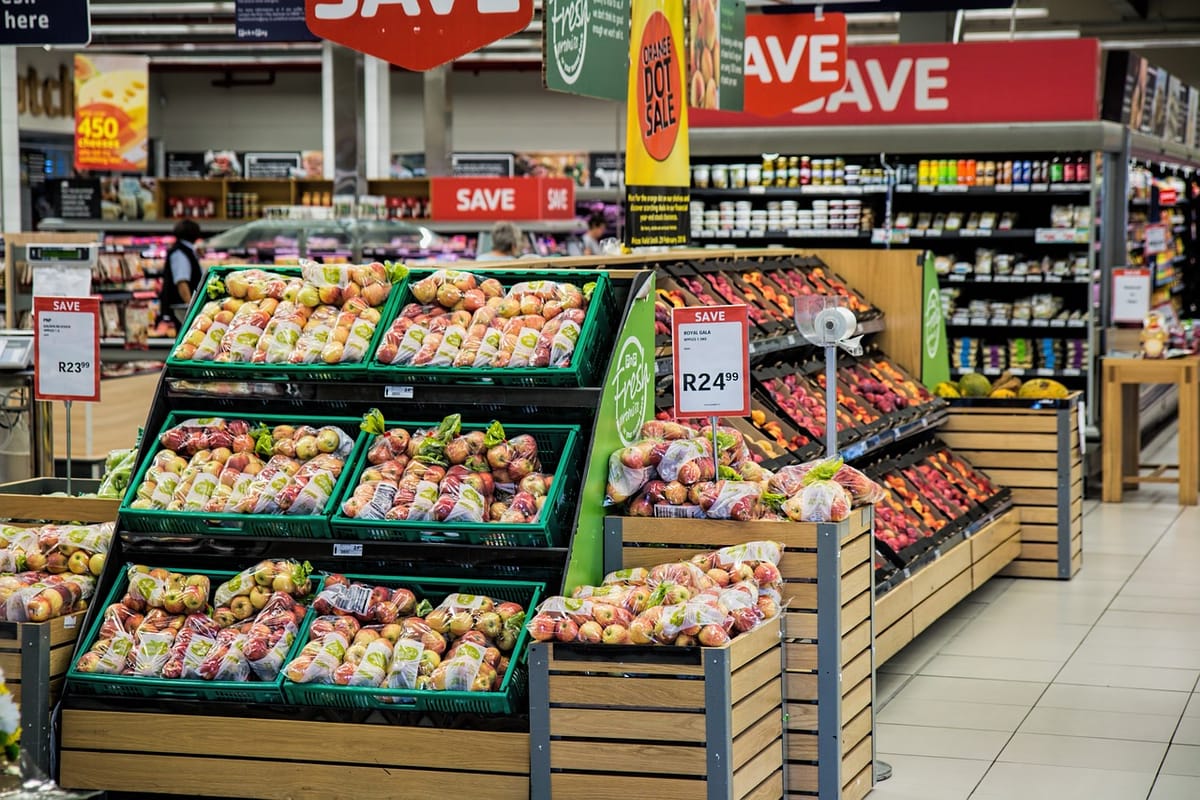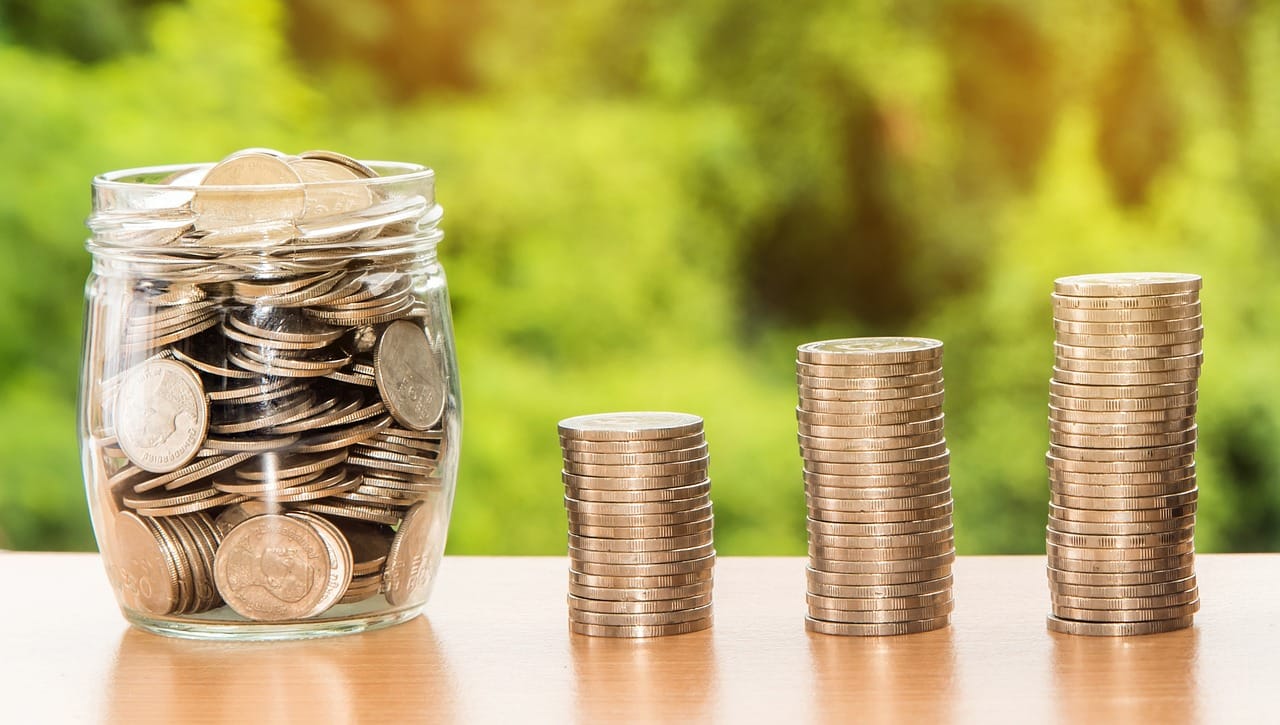How to Save Money on Groceries
Discover practical tips to save money on groceries with our budget-friendly strategies. Learn how to cut costs without compromising on quality

Understanding the Importance of Grocery Budgeting
Grocery shopping is a significant part of our monthly expenses. However, without proper budgeting, it can become a financial burden. Understanding the importance of grocery budgeting is crucial for managing your finances effectively. By allocating a specific amount of money for groceries and sticking to it, you can save a significant amount of money each month.
One of the primary reasons to budget for groceries is to avoid overspending. Without a budget, it's easy to get carried away and purchase unnecessary items that can quickly add up. By setting a budget, you can prioritize your purchases and ensure that you're only buying what you need.
Another benefit of grocery budgeting is that it allows you to track your expenses. By keeping a record of your grocery spending, you can identify areas where you can cut back and save money. Additionally, it helps you become more conscious of your spending habits and encourages you to make smarter choices.
How to Plan a Budget-Friendly Meal

Planning your meals in advance is a great way to save money on groceries. When you have a clear idea of what you're going to cook for the week, you can create a shopping list based on those ingredients. This helps avoid impulse purchases and ensures that you only buy what you need.
To plan a budget-friendly meal, start by checking your pantry and fridge for any items that you already have. This way, you won't end up buying duplicates. Next, look for recipes that use ingredients you already have or are on sale. This allows you to make the most of your existing supplies and take advantage of discounts.
Consider incorporating more plant-based meals into your diet as well. Vegetables, grains, and legumes are generally more affordable than meat and can be just as nutritious. Experiment with different vegetarian or vegan recipes to discover new budget-friendly options.
Smart Shopping Tips for Groceries
When it comes to smart shopping for groceries, there are several tips and tricks that can help you save money. First and foremost, make a shopping list and stick to it. This will prevent impulse purchases and keep you focused on buying only what you need.
Another tip is to compare prices and shop around. Different stores may offer different prices for the same products, so it's worth checking out multiple options before making a purchase. Additionally, look for sales, discounts, and coupons to further reduce your grocery expenses.
Buying in bulk can also be a cost-effective strategy. Non-perishable items like rice, pasta, and canned goods can often be purchased in larger quantities at a lower price per unit. Just make sure that you have enough storage space and that you'll actually use the items before they expire.
Strategies for Frugal Grocery Shopping
Frugal grocery shopping is all about finding the best deals and making the most of your money. One strategy is to shop at discount stores or consider generic brands. These products are often just as good as their more expensive counterparts but come at a fraction of the cost.
Another frugal shopping tip is to buy seasonal produce. Fruits and vegetables that are in season tend to be cheaper and fresher than those that are out of season. Additionally, consider visiting local farmers' markets, where you can often find great deals on fresh, locally grown produce.
Meal planning and batch cooking are also effective strategies for frugal grocery shopping. By preparing meals in advance and freezing them, you can save both time and money. This way, you'll have ready-to-eat meals whenever you need them, reducing the temptation to order takeout or dine out.
Economical Food Shopping | How to Get the Most for Your Money
Getting the most for your money when grocery shopping requires a combination of smart choices and strategic planning. One way to do this is by maximizing the use of ingredients. Instead of buying pre-packaged or pre-cut items, consider purchasing whole foods that can be used in multiple meals. For example, a whole chicken can provide meat for several dishes, and the bones can be used to make homemade broth.
Another economical food shopping tip is to make use of leftovers. Instead of throwing away excess food, repurpose it into new meals or incorporate it into your next day's lunch. This not only reduces waste but also saves you money by stretching your ingredients further.
Don't forget to check the unit price when comparing products. Sometimes, larger packages may seem like a better deal, but the unit price may reveal otherwise. By calculating the price per unit, you can determine which option offers the best value for money.
Practical Tips for Grocery Savings

In addition to the strategies mentioned above, there are several practical tips you can implement to save money on groceries. First, avoid shopping when you're hungry. When you're hungry, you're more likely to make impulse purchases and buy items that aren't on your list.
Another tip is to limit your trips to the grocery store. The more often you go, the more likely you are to spend extra money on unnecessary items. Try to plan your shopping trips for once a week or every two weeks, depending on your needs.
Consider joining a loyalty program or using cashback apps to earn rewards or cashback on your purchases. These programs can help you save money in the long run by providing discounts or money back on eligible items.
Tools and Apps to Help with Grocery Budgeting
Managing your grocery budget can be made easier with the help of various tools and apps. Here are a few recommendations:
- Budgeting Apps: Apps like Mint, YNAB (You Need a Budget), or Goodbudget can help you track your grocery spending and set limits for each category of your budget.
- Grocery List Apps: Apps like AnyList, Out of Milk, or Bring! can help you create and manage your shopping list, ensuring that you don't forget any items and preventing impulse purchases.
- Coupon and Cashback Apps: Apps like Rakuten, Ibotta, or Honey can help you find coupons, discounts, and cashback offers for groceries and other household items.
- Price Comparison Apps: Apps like Flipp, ShopSavvy, or BuyVia allow you to compare prices across different stores, ensuring that you get the best deal.
Case Study | Saving Big on Groceries
To illustrate the impact of smart grocery budgeting, let's consider a case study. Sarah, a single mother of two, decided to start budgeting for groceries. By planning her meals in advance, shopping strategically, and using coupons, Sarah was able to cut her grocery expenses by 30%.
Sarah started by creating a weekly meal plan and making a shopping list based on the ingredients needed for those meals. She compared prices at different stores and took advantage of sales and discounts. Additionally, she signed up for a cashback app, which allowed her to earn money on eligible purchases.
By implementing these strategies and being mindful of her spending, Sarah was able to save $100 per month on groceries. This extra money made a significant difference in her overall budget and allowed her to allocate funds to other important areas of her life.
Overcoming Common Grocery Budgeting Challenges
While grocery budgeting can be a powerful tool for saving money, it's not without its challenges. One common challenge is the temptation to buy convenience foods or pre-packaged meals. Although these items may save time, they often come with a higher price tag. Overcoming this challenge requires planning and preparing meals in advance, as well as finding simple and affordable recipes that can be made quickly.
Another challenge is dealing with food waste. It's disheartening to throw away food that has gone bad, especially when you're trying to save money. To combat food waste, make sure to properly store your groceries and use them before they expire. If you find yourself with excess food, consider donating it to a local food pantry or finding creative ways to incorporate it into your meals.
The Impact of Smart Grocery Budgeting on Your Finances
In conclusion, smart grocery budgeting is a powerful tool for saving money and managing your finances effectively. By understanding the importance of grocery budgeting, planning budget-friendly meals, and implementing smart shopping strategies, you can significantly reduce your grocery expenses.
Remember to utilize tools and apps to help with grocery budgeting, and learn from case studies like Sarah's to see the tangible impact it can have on your finances. Overcoming common challenges, such as the temptation to buy convenience foods or dealing with food waste, is essential for long-term success.
Start implementing these strategies today, and you'll soon notice a positive change in your grocery expenses. Saving money on groceries not only benefits your wallet but also allows you to allocate funds to other areas of your life, ultimately improving your overall financial well-being.
CTA: Start implementing these grocery budgeting tips today and watch your savings grow! Take control of your finances and enjoy the peace of mind that comes with smart grocery shopping.



